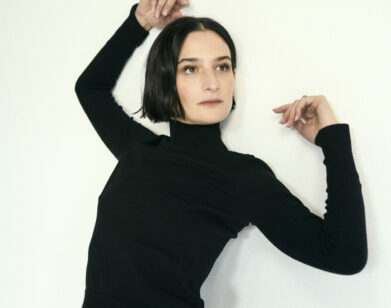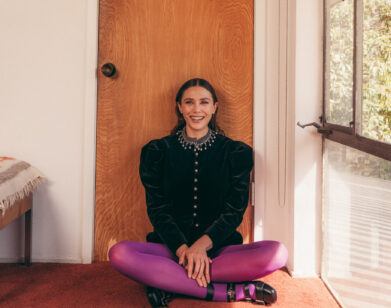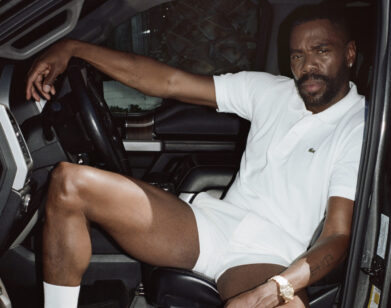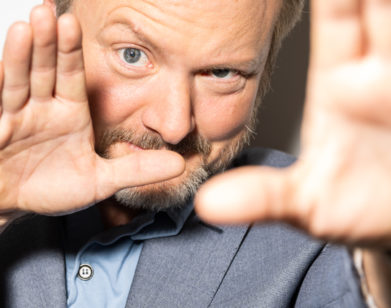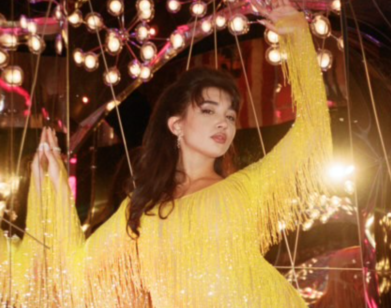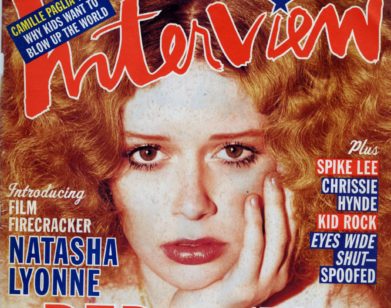Jacqueline Novak and Natasha Lyonne Talk Performance, Blow Jobs, and the Performance of Blow Jobs
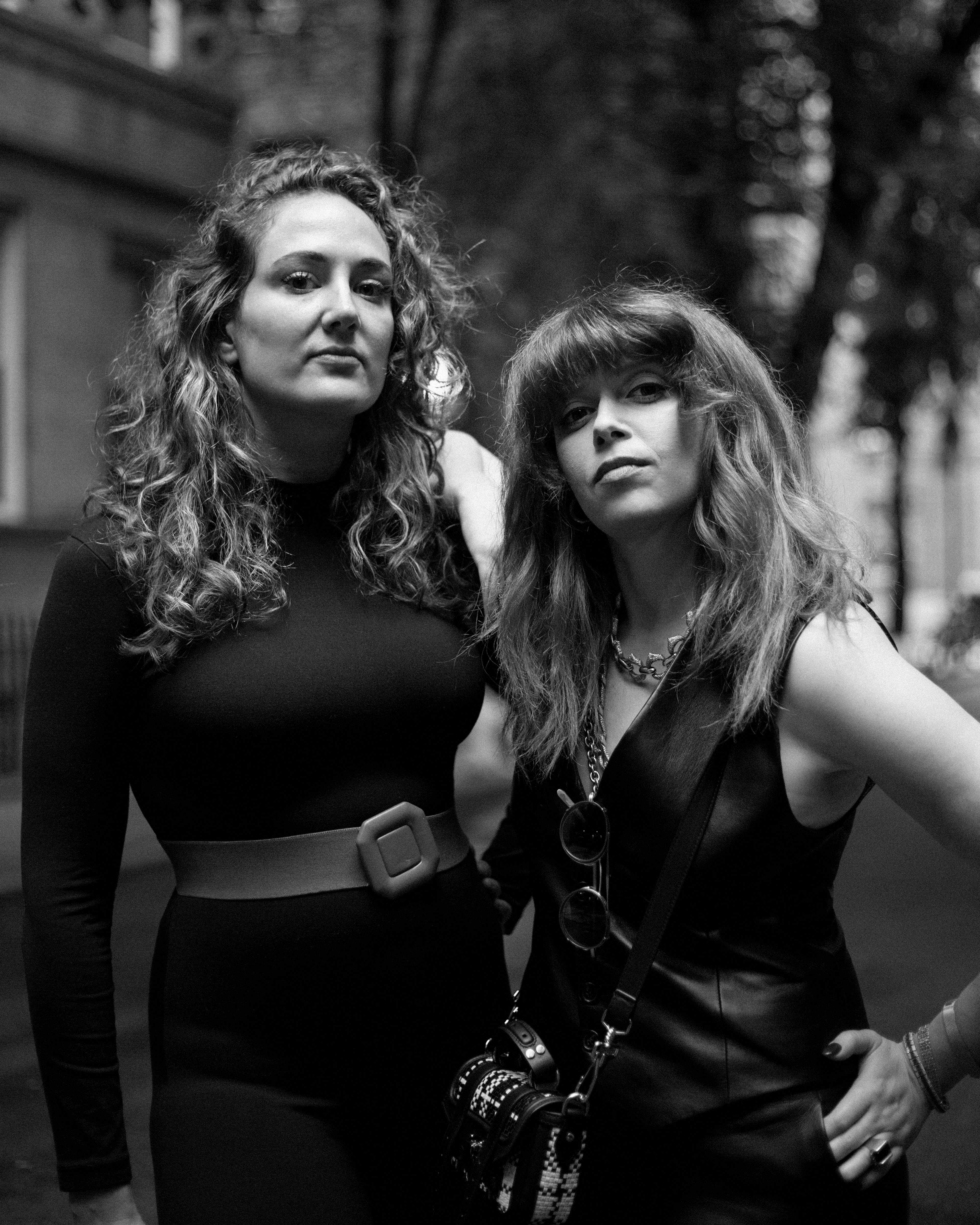
At one point in Get On Your Knees, Jacqueline Novak’s one-woman stand-up (er, bent-over) play at the Cherry Lane Theater in the West Village, she compares a college-aged version of herself to “a broken Philip Roth character,” a Jewish pervert among the stone-walled buildings of an academic eden. Throughout the 90-minute set, Novak saunters back and forth, the microphone cord saucily draped over her shoulder, orating (“I’m a natural orator,” she tells us), the entirety of the blow job. With poetic precisixon, Novak dissects the semantics of all things fellatio, from the lurking danger of her teeth to the conundrum of the “rock hard boner” (“Rocks have properties.”) Perhaps never, since Roth and his Shakespearean accounts of guilt-laden masturbation, has someone tackled the mechanics of male genitalia with such literary profundity.
It is this resonant frankness, the singular candor of the philosopher-comedian, that binds Novak to the show’s presenter and a mentor of hers, Natasha Lyonne. Both are linked by a particular flavor of New Yorkais, the bits and riffs and hand gestures and relentless tango around a subject to arrive at its Talmudic essence—something that also links them to a line of New York comedians in the shadow of Larry David. And yet, unlike David and his nebbish ilk, Lyonne and Novak possess a brassy self-awareness that reads as “feminism” only in a society where expressing one’s overthinking, sex-driven selfhood is a political act.
On a humid afternoon inside the overly air-conditioned Cherry Lane Theater, just days after receiving 13 Emmy nominations for Russian Doll and in between promotions for the final season of Orange is the New Black, Lyonne chatted with Novak about Missy Elliot, male allies, and performance anxiety, in all its forms. But in an unfortunate twist seemingly lifted from Russian Doll, a torrential downpour upon New York City and an ensuing flash flood warning interrupted our recording, necessitating that we all reconvene on the phone two days later. The following, dear reader, is the result. –SARAH NECHAMKIN
———
NATASHA LYONNE: Hey Jacqueline, it’s Natasha from Jacqueline Novak Enterprises. I’m so glad to be speaking with you again. In a twist of fate, our initial discussion that was one for the ages was lost to a flash flood warning.
JACQUELINE NOVAK: It’s unbelievable. It was one of the greatest things, listening to you talk about me. I had that sense of peace that it was all being caught, so I sort of let it wash over me. And then it’s gone, and it’s devastating. To me, in the spirit of authenticity, we can’t recreate that. We’ve just got to be free and live now, I think. Right?
LYONNE: Right, or we have a choice to just wallow in the past, because one of the great joys was speaking so eloquently about you. Of course, the event that transpired is that the previous interview was on opening night, so it was ahead of your opening night performance. Then in between this interview, there was a type of cosmic downfall that came, and the heavens were split and a torrential rain followed that cleansed the earth, much like in Taxi Driver. The morning after—we’re now two days later—so we’re now post a night of glory, and I am now no longer just a hype man, but like everyone else, get to be basking in your golden glow. How did that night go for you? How are you feeling in the aftermath?
NOVAK: Well, relief to have gotten through the initial presentation, all those people and the excitement. That always feels really weird to me. At the party, I came in, and then some of you guys started applauding, and I was really afraid to turn around in case it wasn’t for me and that someone would think I thought it was for me. Then I did turn around. I really felt weird, because I don’t have birthday parties. Obviously I force attention on myself when I’m performing, but something about it just truly being my show and people showing up was disorienting. I feel oddly exposed.
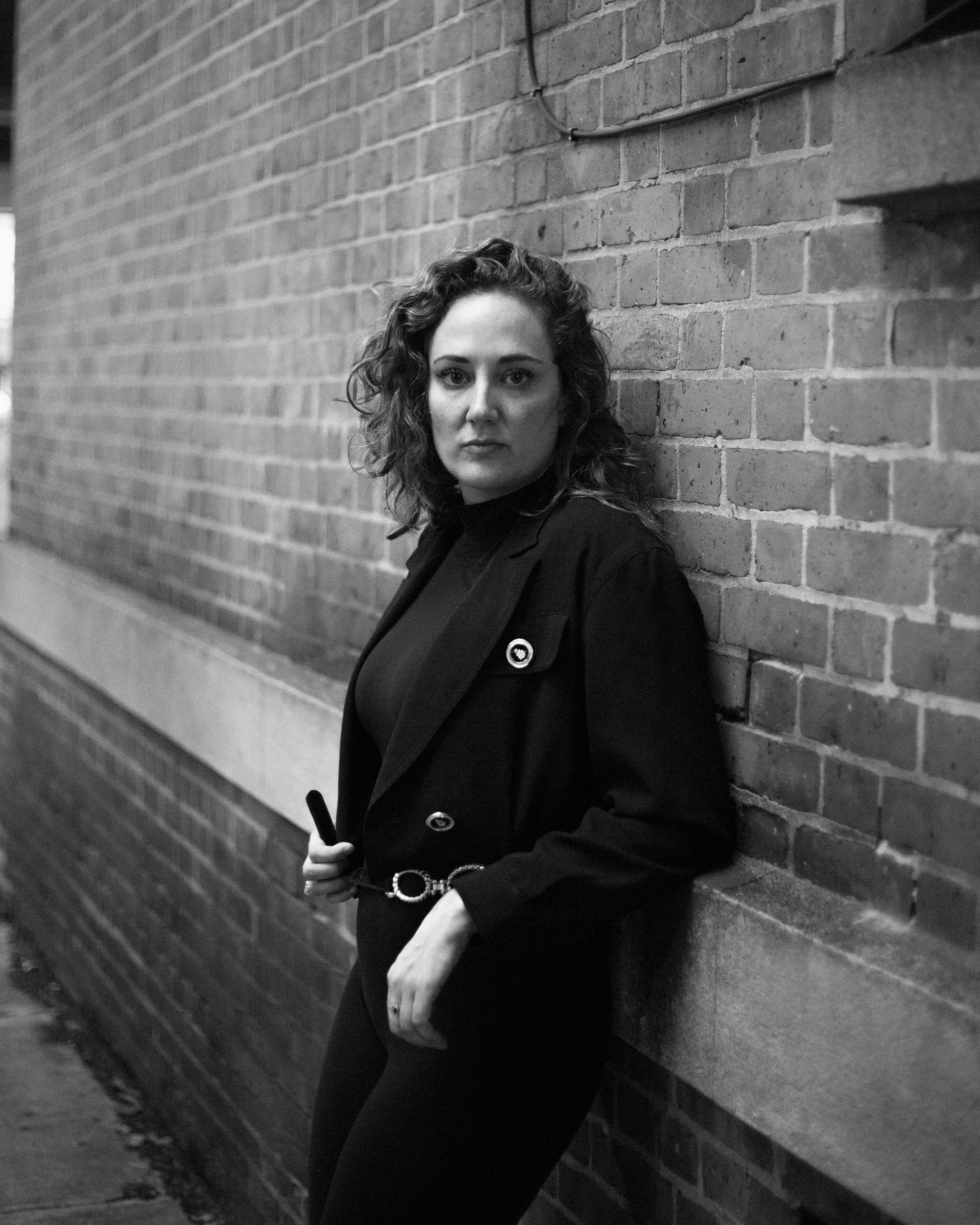
LYONNE: It’s a deeply exposing, vulnerable show, so that’s maybe why. I will say that I was trying to be a confident bolster.
NOVAK: You were.
LYONNE: In the days prior and the night of. I would be terrified going out there like Spalding Gray. There’s nothing scarier.
NOVAK: Really?
LYONNE: Absolutely. I think that what you do is truly triumphant in not only its linguistic artistry and the living embodiment of the articulation of brilliance, and experience taken and claimed as one’s own in the most beautiful way, but also just the vulnerability of it, of really being out there by yourself. The jokes are tremendous and hilarious, but also the exposure of it—it’s big boy stuff. It really is.
NOVAK: The audience being an opening night audience, it was almost like they were a little weird when I first came out. A couple things that normally get laughs didn’t, and I was like, “Oh, fuck. Maybe this isn’t going to be easy.” It was interesting in that way. Then I found you a huge confidence booster before the shows. And now I’m basking, and I do feel exposed—not so much even with the material of the show, because obviously I don’t mind doing it in front of strangers—but just professionally exposed, because there’s attention on it that I’m not used to having. It’s very weird. I do feel slightly disoriented by it.
LYONNE: Leading up to your performance to get you in the bone zone–which is a professional term–we spoke about how we met because you were an opening act with Fred [Armisen], my boyfriend, on tour, and we would spend time together backstage palling around some. One question I have is how you came to speak about ghosts so fluently?
NOVAK: Oh, good. I just want to say, it’s interesting articulating our own stories. I think I’m the worst extemporaneously trying to talk about things. I always feel I can barely get anything out, because I change my mind halfway through the sentence. I’m always blown away because I feel like you, Natasha, really get it done spontaneously in the moment. I feel like I say things to you in complete abstraction, that I’m not landing on it at all, and then you somehow reflect back to me and understand what I meant. Me on stage—that’s the illusion of me being articulate. I’m working out these phrases over time, obviously. So I just pretend. I just fake it. But I always feel like, even now, you just really cut to it and meet the situations. I don’t know how you do it.
LYONNE: Well, takes one to know one.
NOVAK: Exactly.
LYONNE: What about [director of Get On Your Knees] John [Early]? How did that all come to be?
NOVAK: John has been a real champion of mine, personally encouraging me through believing in what I do, even though it’s different from what he does. He’s been a real confidence bolster. We did some shows together where he would give me notes on stage, even though they weren’t really notes. They were just compliments. We did that last year before I went to Fringe Festival, and then we did it again in L.A. recently. He knows exactly what I’m thinking and I can’t hide from him. It’s kind of scary, actually, hearing his notes. I’ll try to hide, like I’m doing some angry empowered show, and he’s like “You were just upset you weren’t getting laughs and you tried to turn it into that or something.” I’m like, oh fuck, you’re right.
LYONNE: That’s a good director.
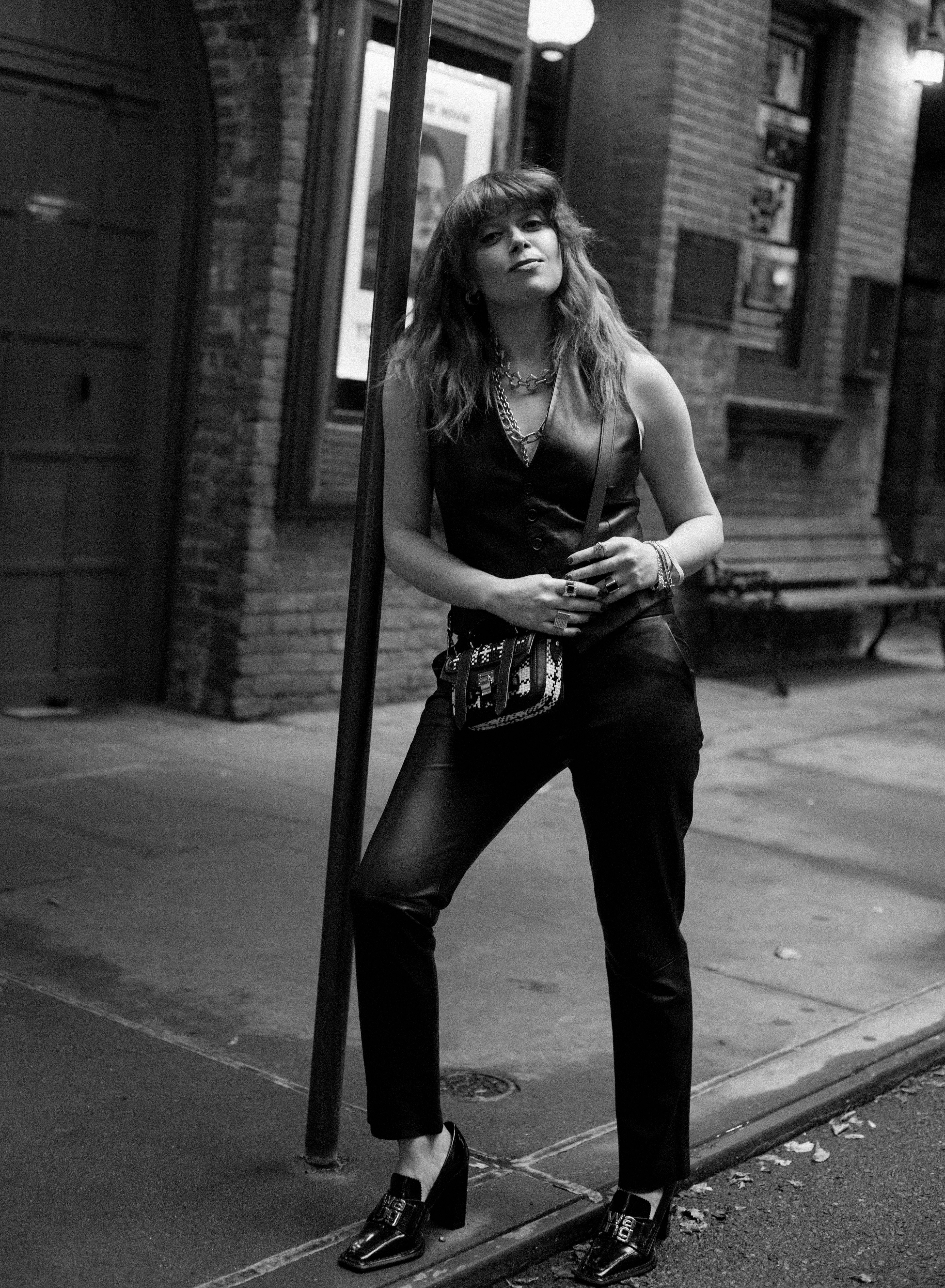
NOVAK: He was calling out that I slow down when I try to find my way into something in a new way, and then I want to translate, in real time, the rest of that set into that tone, so I’m slowing down to filter everything through the new tone. He just spots all of it. It’s disturbing to be seen.
LYONNE: I feel like mention is warranted for these beautiful boys who support our female giants. I really came to know you through Fred, and then [Mike] Birbiglia, I think was the one that connected you with the Cherry Lane Theater as a producer. Then there was John being this trusted ally and the person you could be most honest with. I think it’s a beautiful thing to note when we speak about the ways in which we, as a community, can be allies to each other, and not in a state of the war of the roses. This is what it looks like when everybody is on the same team working in this beautiful way for the arts. This is such a particularly female lens, and it’s so beautifully empowered and articulated by your specific experience and point of view. It’s a really nice thing to note in this time that’s so much about boys and girls. There’s also this version which just makes me delighted about what a utopian future in the arts can look like.
NOVAK: Totally. That is absolutely what I was feeling. What I was taking away from the night, what just absolutely gave me the most joy, really, was these people who had either come together recently, like I have with Natasha, or these people that I’ve known since I started in comedy. The most satisfying part of it was getting to do the show with those people around me, and getting responses from people I love and respect.
SARAH NECHAMKIN: How did you come up with the idea to make a show about the male phallus primarily, but also using it as a vehicle into a more philosophical arena?
NOVAK: I can’t remember how I first started doing any of the penis jokes. I don’t think of myself as that interested in penises as an idea. I had a joke that I’m not proud to be a heterosexual. Why would I be, as a modern woman? It seems uninteresting. In order to explain that, I’ve said I like the penis, I’m drawn to the penis. The way I express it is by saying there is no dignity to lust after the common shaft. It’s not like the penis is this thing I’m that into. It’s assumed that it must be. Then in order to further explain what is the penis in this way, a dumb object that you see in museums, ancient civilizations worshiping with stone phalluses and that sort of thing, it made me start asking one question after the next. I had some jokes that led to me saying something about the “rock hard boner,” and it not really being rock hard and that being inaccurate. I remember when I was opening for Birbiglia on the road, a male audience member was audibly, like, doubting whatever I said. He called out something or shook his head toward the front row. So I leaned into it. I was trying to explain that it’s really not that hard. If you ate it in a restaurant, if you took a bite, you would think that was the tenderest meat you ever tasted. Then that led to another joke. Then it became: let me look at all the things I’ve heard forever about the penis, and let’s just point out how they’re all absurd.
NECHAMKIN: It’s so intellectualized. That’s what makes the show so funny—the contrast between it being such a base topic looked at with such an intellectual approach.
NOVAK: Totally. That’s just how I think about things. It’s my read on my own life.
LYONNE: One of the things we spoke about was Missy Elliot, and the ways in which my experience of you was that you really “flipped it and reversed it” in terms of the entire English language and gender, but more importantly, existence as a whole. I think of you as one of our great new philosophers with a deeply existential show, and that’s ultimately what it’s really about. How much of the show is autobiographical?
NOVAK: It’s all autobiographical—other than some tweaks, in order to be able to get through it in one show. If it was five blow jobs in my life, but I could only get through three, I try to leave some out. That way if I ever want to write a book about all this, I don’t have to contradict myself.
NECHAMKIN: An oral history.
NOVAK: Exactly. I like to try to maintain the truth as much as possible and only alter it if it’s necessary and isn’t altering my emotional truth. I definitely wouldn’t throw anything in that didn’t happen in order to create an emotional experience that I did not have.
NECHAMKIN: What do you think makes the perfect blow job? Is it the intention? Is it the enthusiasm? Is it the will to follow through? Is it the actual thing?
NOVAK: I think my thesis of the show in regards to the blow job is that the intention is the most important part. Then whatever spills out, whatever unfolds from the intention is as it should be. If someone’s enthusiastic, if it’s coming from passion and that means that drool is slipping down their cheeks, then I would encourage them to feel like that is part of the beauty of the thing. I’m just defending the idea that the details of this life that happen organically have a beauty to them. I’m not trying to act like I’m saying something that’s a revelation. In the show, I’m so irritated at the world for not having picked up that lesson in eighth grade English. I’m like guys, haven’t you ever read a poem? It’s the details of this life that make things juicy and textured.
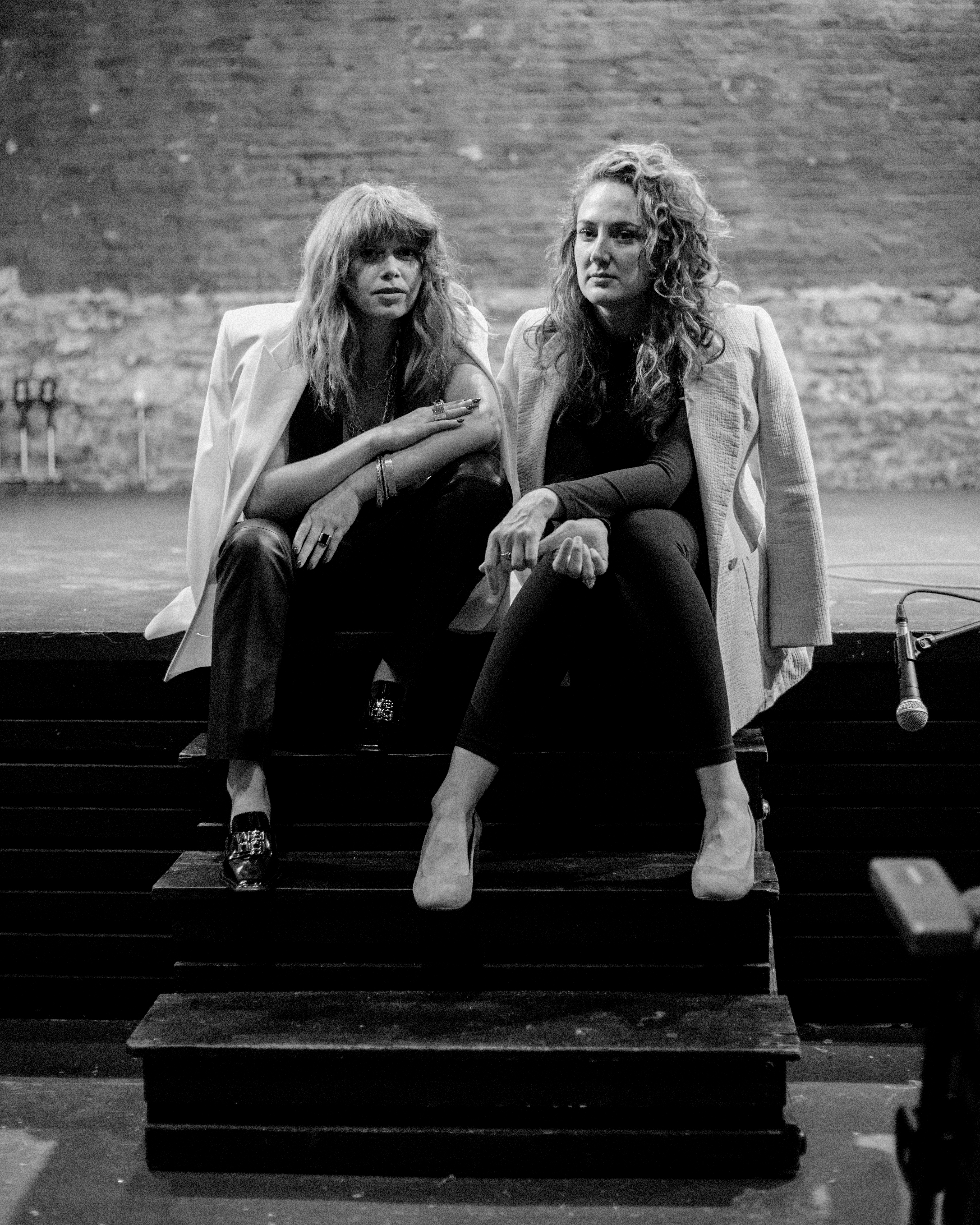
The perfect blow job is certainly not about a physical perfection. If the blow job is an expression of your soul’s desire, then however it looks is great. The body is inherently an embarrassment, and yet you can choose to embrace it in its flaws and its crassness. I like for things to be bigger than the containers that are meant to hold them. I like this idea that the soul should be bigger than the body. The body should behave as a poor container for a soul that’s spilling out over the edges, ideally. My metaphor there is like a loaded baked potato. To me, it better be overloaded and those ingredients better be spilling out over the sides because if they’re not, then I don’t trust you fully intended to fill it. You never know you filled something completely until it begins to spill. In that way, I believe passion should spill over the edges of the container of the body.
NECHAMKIN: Did you ultimately end up enjoying the blow jobs, or did you feel like it was just the need to prove to yourself?
NOVAK: I think as an expression of desire, or whatever intention you have behind it, it’s a pretty interesting one. For me, part of the show is trying to absolutely end the idea that getting down on your knees is degrading. Obviously, anything can be degrading. Something is not inherently degrading. No one likes to be told they’re being degraded when they don’t feel they’re being degraded, right?
NECHAMKIN: Do you still have the line analogizing the toothy blow job to the jelly toy in the cereal box that you stick it to the wall and it keeps falling, and that it will never stick, but that’s the beauty in the process?
NOVAK: I do. I was like, maybe I should give those out. A favor on the way out of the show. It could be cute.
NECHAMKIN: Can you find them online now?
NOVAK: Yeah. You can find versions of them in bulk.
LYONNE: So what’s next for the great Jacqueline Novak?
NOVAK: What’s next? Hopefully you and me doing something together. Not letting you slip off into the ether. I want to make a film. I want to make some TV, write some more books. Those are the big ones.
LYONNE: I can’t wait. The world is a better place. The more Jacqueline Novak, the better.

